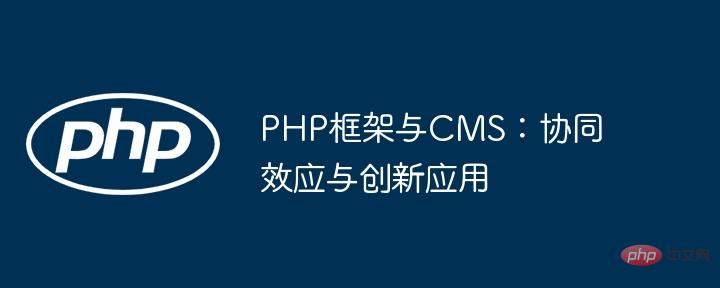
PHP framework and CMS work together to provide modularity, security and development efficiency. This synergy is reflected in practice: Modularity and scalability: The framework facilitates the integration of CMS functions such as content management and user management through a modular structure. Security and performance: The security functions provided by the framework complement the security measures of the CMS and enhance website security, while the performance optimization functions of the framework improve website performance. Development efficiency: CMS simplifies content management, frees developers to focus on core application logic, and improves development efficiency.

PHP Framework and CMS: Synergy and Innovative Application
Foreword
PHP framework and content management system (CMS) are the two cornerstones of website development. They work together to provide powerful functionality and ease of use. This article will explore how PHP frameworks and CMS interact and how the synergies can be exploited in practical applications.
SYNERGY
Innovative Application
Practical Case:
Consider developing an e-commerce website. First, you can use a popular PHP framework such as Laravel or Symfony to provide the framework and infrastructure. An open source CMS such as WordPress or Joomla can then be integrated to provide functionality for content management and website maintenance.
Advantages:
Conclusion
The synergy of PHP framework and CMS provides a powerful tool for website development. By leveraging their modularity, security, and development efficiency, developers can create powerful and easy-to-maintain websites. Practical examples demonstrate how this synergy can be applied to real-world applications, such as the development of e-commerce websites.
The above is the detailed content of PHP framework and CMS: synergy and innovative applications. For more information, please follow other related articles on the PHP Chinese website!